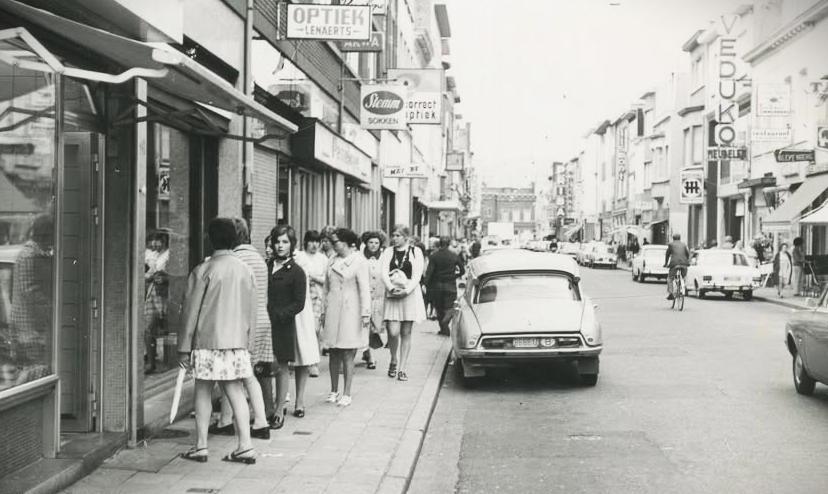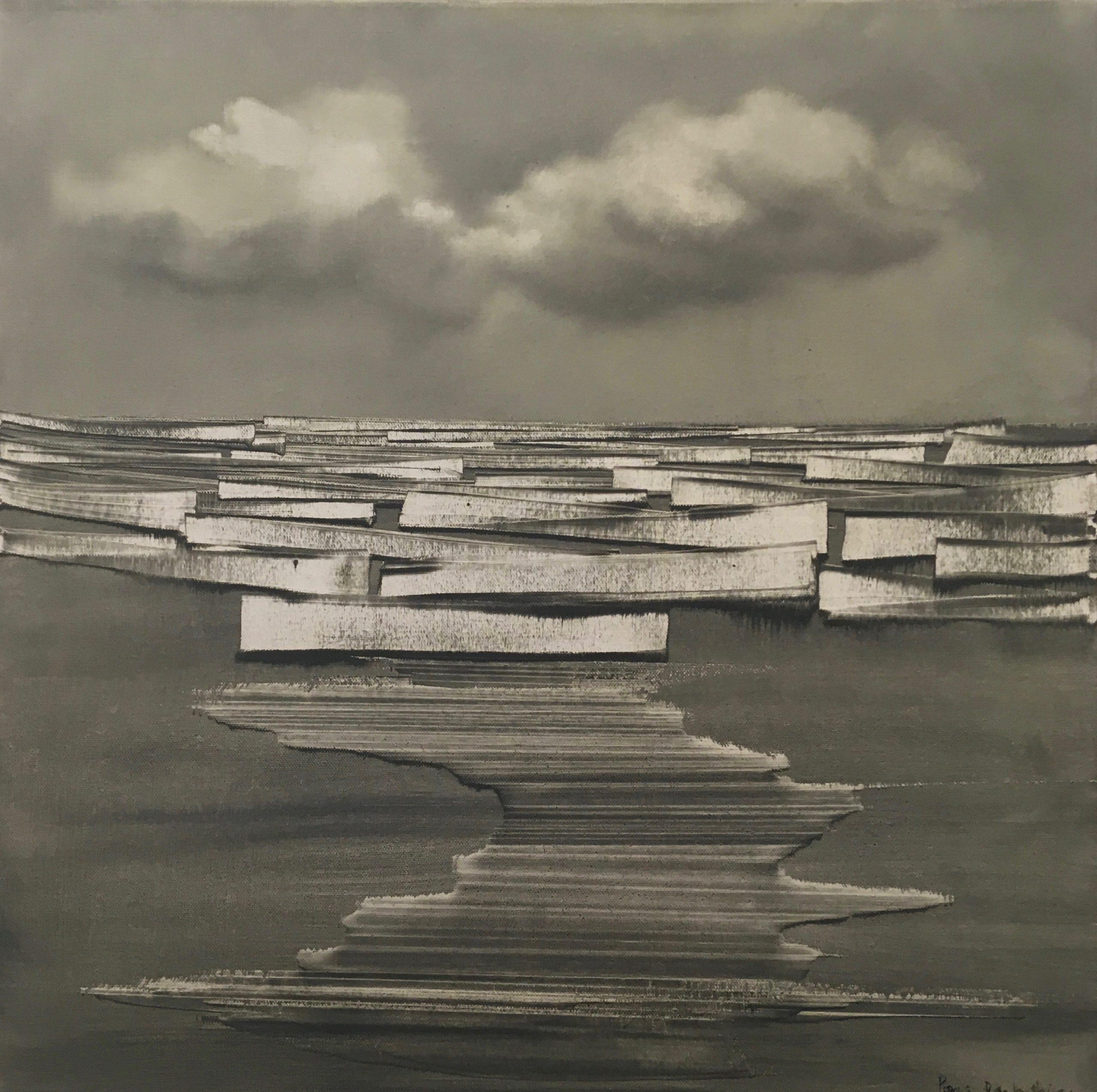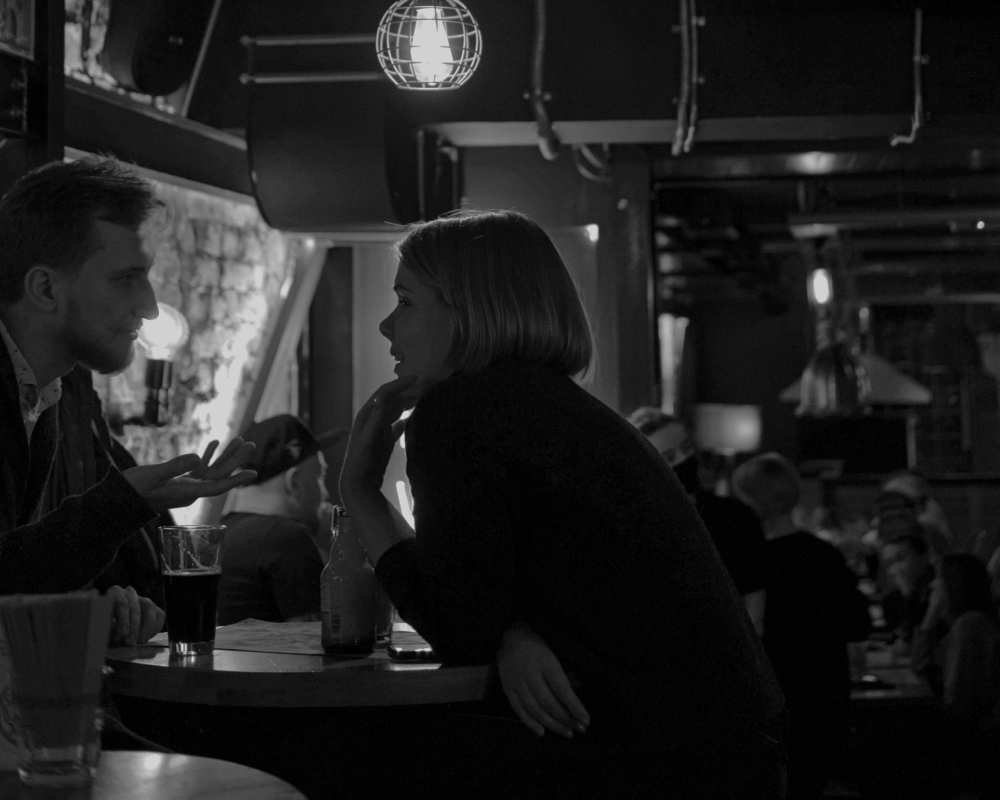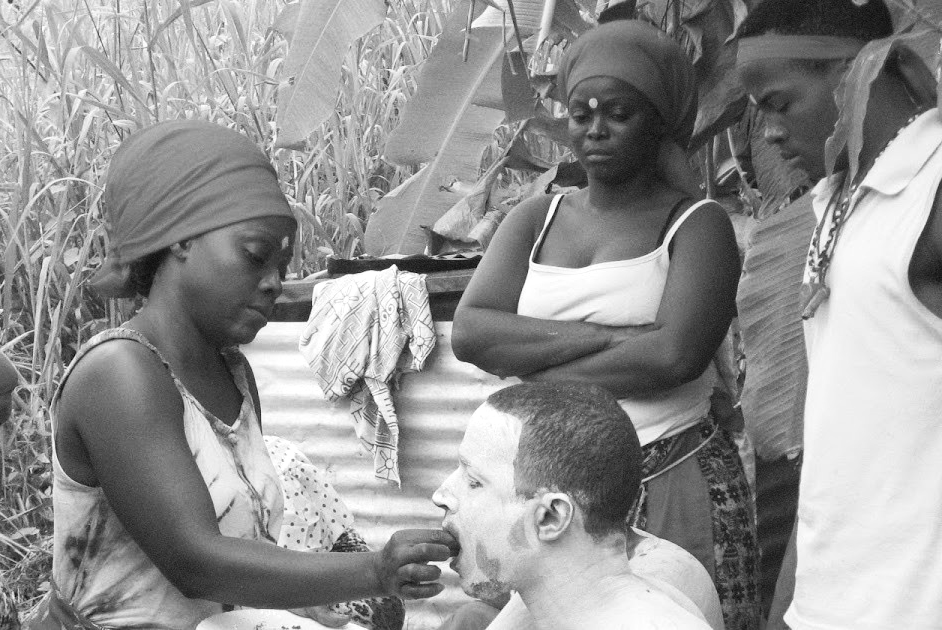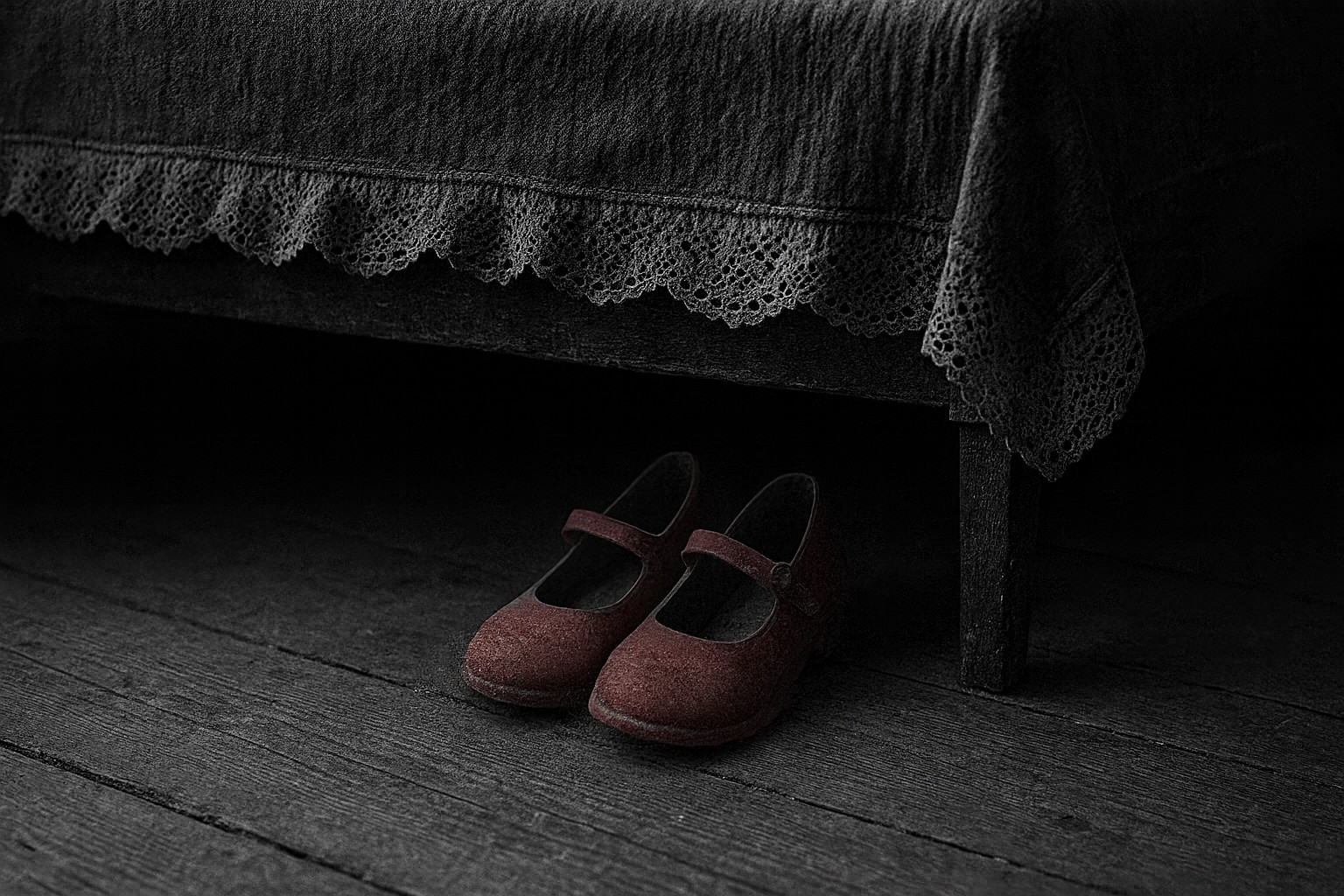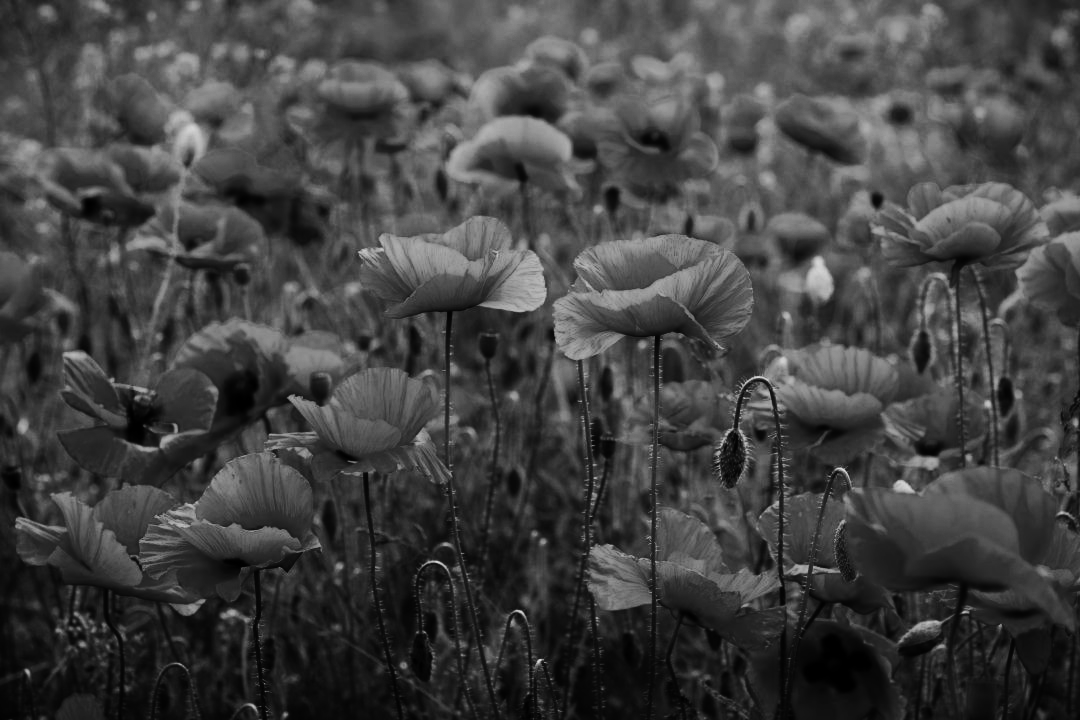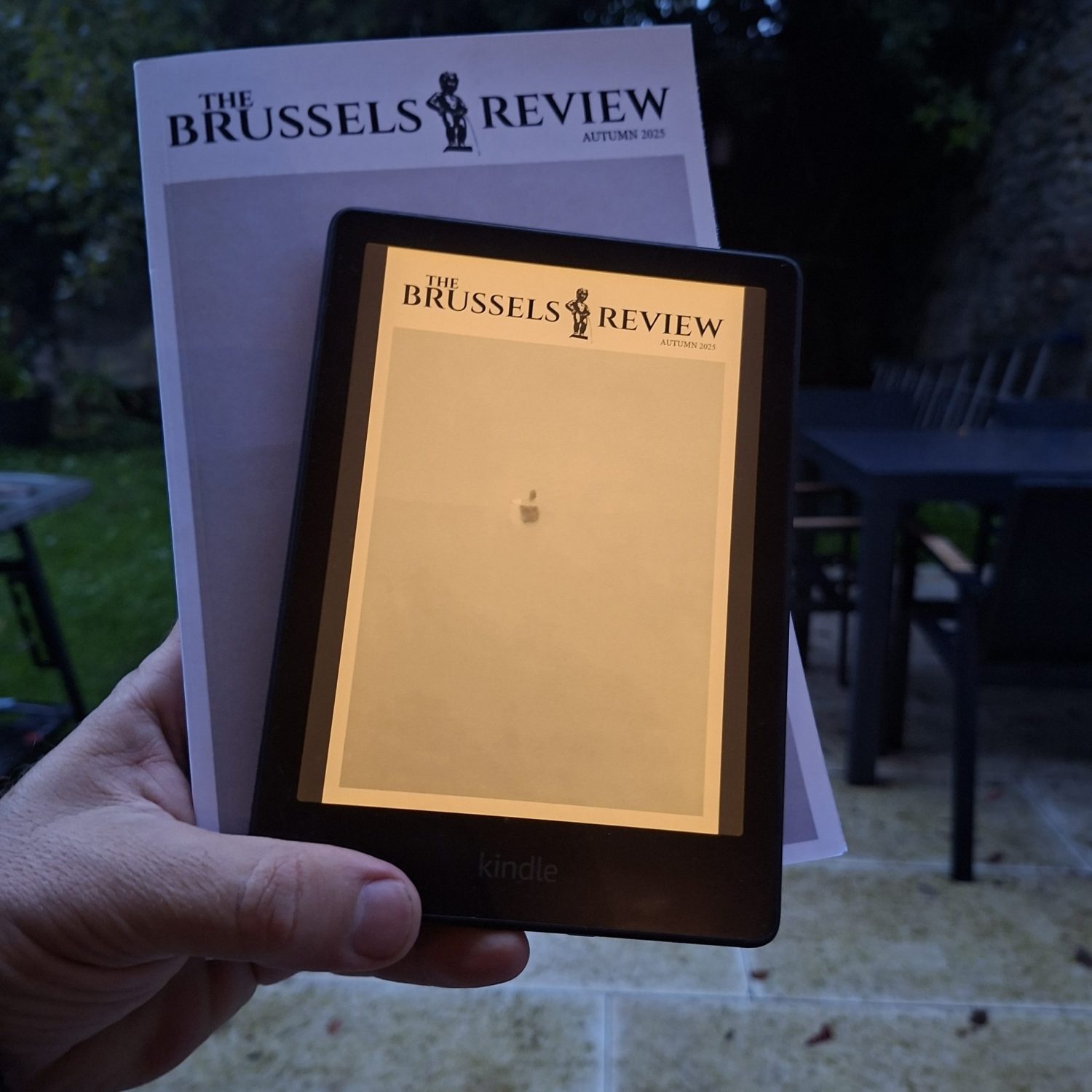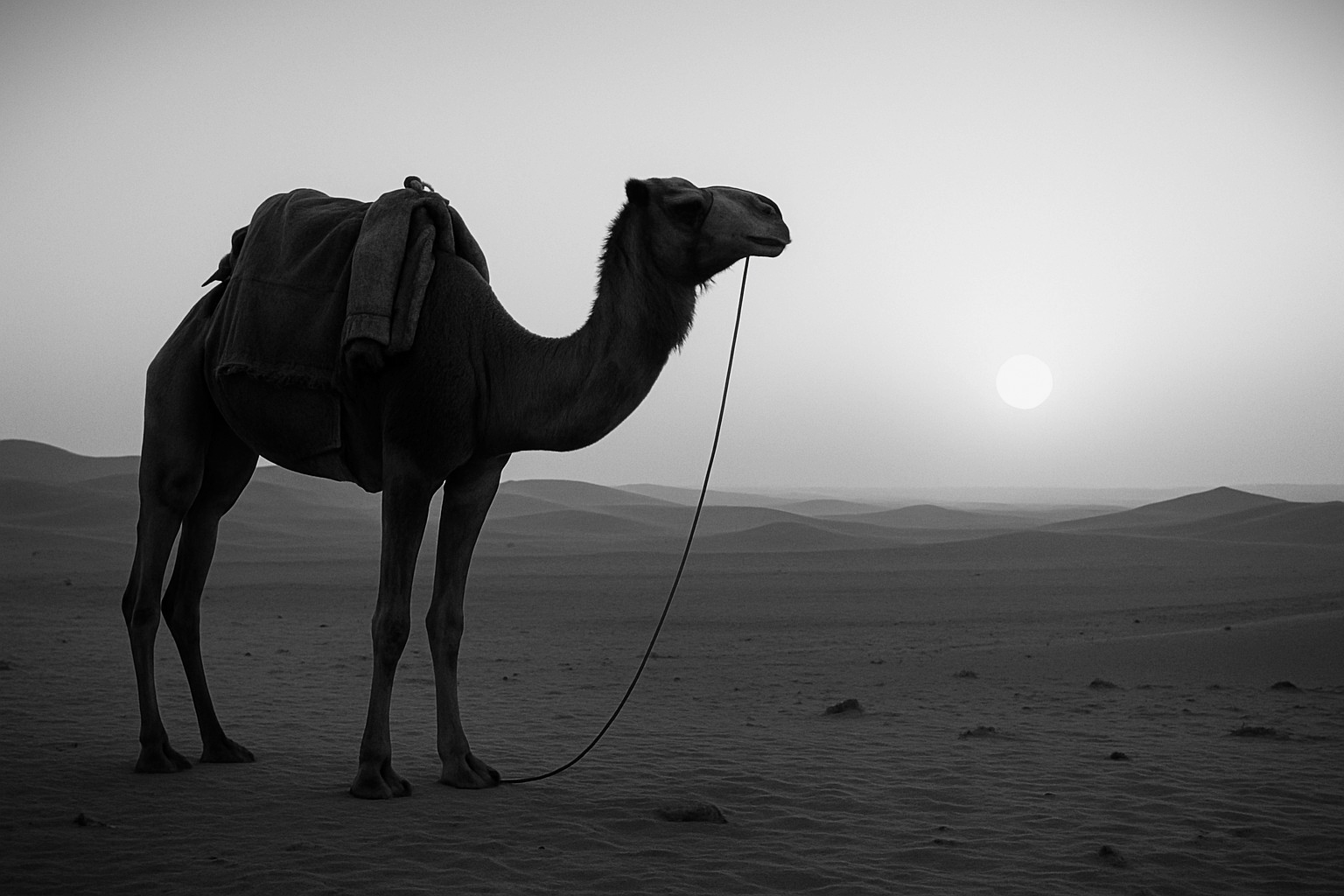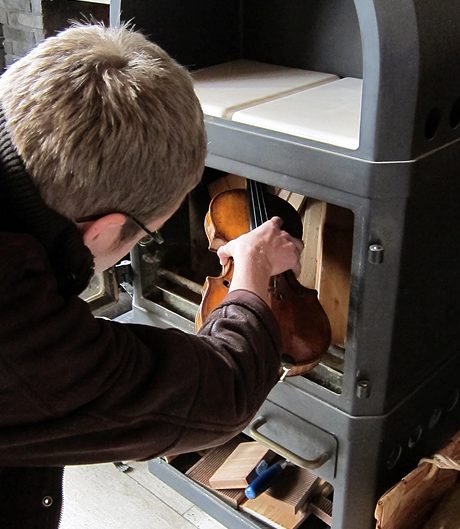I imagined the pain of hunger in his stomach. The gnawing, empty feeling. The metallic sound of tin cans turning over and over like pennies rattling against aluminum, only to leave you with more cramps and emptiness. Like knives scraping against the sides of your stomach, crawling up the ridges of your ribs, intensifying with pressure like cutting bones, burning all the way up the nerves of your neck, extending like long fingers generated with electricity, boring holes into the base of your skull, making you think about only one thing — food. But in reality, all I knew about hunger was the feeling of emptiness induced by waiting for the next meal, or in a real extreme situation, a skipped meal.
I had no idea the hunger some people endure. I had heard and felt those tin cans rolling in my stomach before a meal. I had felt the cramps, light-headedness, even the anger and frustration from waiting hours in between eating, but that’s all it had ever been — hours, maybe a day, but that’s it. I had never gone to bed in pain because there was no food available. I had never woken up in the middle of the night unable to fall back asleep because of hunger knocking on the walls of my stomach. I had never worried about what I would eat the next day. Even in my worst of hunger, there was relief in knowing that food would soon be available.
My maternal grandfather didn’t have that luxury. He also endured loss, rejection, failed dreams, and sorrow, but how can you even think about all of that when you are always hungry?
I wondered if some days he forgot about everything else. About his mom walking out on them one day, leaving her husband and her nine children behind, packing her bag, while her three year-old son sat on her foot and clung onto her leg with his arms and legs wrapped tightly around her, grasping as strong as he could, as she dragged his little body with her every move, stuffing a bag with her belongings, and ignoring his tears spilling onto her shoes and his little voice pleading, “Mommy, Mommy, please don’t leave!”
I heard she left for another man and never came back. Not just left her spouse like some parents do but are still part of their kids’ lives. She never came back. Not ever. One day she was there, and the next day she was gone, forever.
I couldn’t imagine what forever felt like as a child, knowing your mother existed, but no longer to you. And even more so, I couldn’t imagine what could make a mother do that. Maybe it was the responsibility of it all. Maybe her husband didn’t treat her well. Maybe she was just in love with someone else. I don’t know what it was. She could have been in a terrible situation, but what I couldn’t understand was how a mother could abandon her kids. Forever.
I heard that his father, Mr. Garner, took on the responsibility of the children simply as his duty, not like a badge of honor. In fact, I can imagine he felt anything but honorable as he continued to work, day in and day out, any day he could find work, to try to support his family during one of the worst economic times in history — The Great Depression.
Unfortunately, his hard work was mainly spent looking for work. He couldn’t find enough work to keep a home or feed his nine little mouths, so he did all he knew to do. He entrusted his children in the hands of someone else because he had no choice.
***
I imagined the orphanage like the one from the Annie musical. No love, constant chores, worn-out, dirty clothes, and limited food supplies. From what I know, I was right. However, what this orphanage didn’t have was all of the singing, dancing, and hope of finding a family. It was a rundown, crowded shelter, in the middle of Arkansas, home to many children whose parents were living on the streets looking for work, losing their battles against The Great Depression.
I was told that the children were starving. That the hunger pains were so bad that they took over their minds and put the children in survival mode with one mission — to find food. At
the end of the week, if they were lucky, a little truck arrived with stale bread and other leftover donations to deliver to the home.
My mother said that when she was a young girl, her father told her stories of the bread truck, as if it equated to the hope in the Annie musical of an improbable assignment of a real home. I envisioned the truck similar to an old Wonder Bread truck — outdated, small, four wheels, once painted white, but discolored gray now, and I felt the vibrations of its failing struts as it clunked over rocks and gravel, announcing its arrival. My grandfather and the other children knew the schedule of the truck. They also knew it wasn’t faithful as its main stop was not their home, so their eyes and ears were always vigilant — first, scanning for the crunching sounds driving down the narrow dirt path scattered with pebbles, then listening for the hissing of the halting engine as it idled in front of the home, and finally waiting for the driver to bring in the deliveries. The time between the man opening the orphanage door with his bags and hearing the squeaking of the floorboards as he exited the same door, was their moment.
The back of the truck was left unlocked as the deliveries were made. The ultimate goal of each child was to get inside of the truck and shove as much bread into their mouths as possible in the time they had between the delivery man dropping off his goods in the kitchen and opening the creaking wooden door of the home to return to his vehicle. My grandfather watched guard every week with many of the other orphans, and as the donations were carried inside, the children, sheltering for the right moment behind trees, rocks, and any other cover they could find, would immediately dart towards the target for a chance of scraps left in the back of the truck, or crumbs, that had already fallen out of ravenous hands and mouths into the dirt.
Unfortunately, sometimes kids would get caught and would receive the worst punishment — to lose a meal, or two, or more (depending on the shortage of food). However, those moments shoving bread in their mouths with both hands, like chipmunks storing food in their cheeks,
while little crumbs dropped to the ground, were worth the risk. No matter what was taken away from them, the temporary reduction of scraping hunger pains and the feeling of something other than acid and air bubbles in their stomachs was all worth a potential, future loss. When you are starving, all that matters is the present moment.
Hunger leaves an impression on you that you can’t forget. Even when you aren’t still hungry. Even in his 80s, my grandfather wouldn’t waste any type of food. Not only would he not waste it, but he would risk getting sick over food as long as it was eaten. One night, my grandfather spent a night in the hospital due to severe stomach pains. He was told it was heartburn. When the doctors found out what he ate for dinner that night, they weren’t surprised why he was there: Tabasco sauce on toast.
“Why?” my mother asked on the phone.
His answer: “Because it was there.”
Even after a night in the hospital with a burning esophagus, I don’t think he regretted knowing that he didn’t waste food.
My grandfather lived in that orphanage for seven years, hungry and abandoned. His eight younger brothers and sisters lived there even longer. His dad would visit all of his children when he wasn’t working or even more so looking for work, which wasn’t often. I imagined he felt so guilty for abandoning them all by default, but he had no choice. He couldn’t try to work all day, every day, and also stay home to raise the children. He did the only thing he knew how to do — work hard for his family.
As he got older, my grandfather took care of all his siblings more and more. As the eldest, he knew it was his duty to help provide. He went to school and then to work so that there was more to put in their mouths than stolen breadcrumbs from the truck. At the age of 17, when he graduated high school, he received a once-in-a-lifetime honor and opportunity — a full
scholarship to attend college. While to many people, there wouldn’t even be a decision as to whether to accept it or not, and to others, if they had other obligations, it would be one of the hardest decisions they had ever faced, to my grandfather, this was an easy choice. He knew he had to turn it down. He had to continue working enough hours to help support his siblings.
***
My grandfather never told me these stories. My mother did, and she told them with pride. She talked about how strong of a man her dad was, how brave, how kind-hearted, and above all, how selfless. All the while she was talking about him, I would think about what kind of a monster my grandfather’s mother must have been. I imagined an evil woman with no face, like in the Saturday morning cartoons where you just see the feet and maybe the body of the adults. All they are doing is yelling, and all you can hear is a raspy, nagging sound, like Mammy’s southern voice from Tom and Jerry, whose character was so culturally offensive that she was eventually removed entirely, or the brassy, trombone noise of the teacher in Charlie Brown that once it reaches the children’s ears, all you can hear is “wah-wah-wah.” I imagined his mother having one of these voices, or a distant, muffled combination of the two, wearing heels and white stockings, a knee length skirt, an apron, and even having a broom in her hands, using it to swat away the children as she packed her bags.
Some people argue that the adult cartoon characters had no face simply to save time and money on animation. Others argue that it was to focus on the world of the children, not the adults. No matter which argument, or maybe a different one, the end result is that the large body and lack of a face shows power and disconnect from the young lives. I have never imagined a human without a face, except for my grandfather’s mother. She had all of the power. She had the power to change every single one of the Garner children’s lives. She had the power to make them better or make them worse, and for whatever reason she had, she chose worse.
The truth is, I don’t know if she was wretched in guilt, erratically packing her bags, or if she was calculated and smiling like she was going on a vacation. What I do know, is that my mother very vividly described her father’s recollections of her at-the-time three year-old future uncle, sitting on his mother’s feet, clinging to her legs with all of his toddler strength, with tears rolling down his face, dragging his feet along the floor, as she moved about the room — whether it was swiftly or slowly — looking for her belongings. What else I know is that she didn’t just run off into the streets hoping for the best, but that she left with someone, and that she never came back.
I’d like to think of her as a mentally-ill gypsy, who just snapped, and couldn’t take life anymore and traveled from one unknown place to the next, in search of something she probably never found, because the alternative would just be a cold-hearted mother, who lost control of her life, became distracted by another man, and gave up the most important responsibilities that God ever gives out. I don’t know which it was, but what I do know is that when a parent leaves, someone has to pick up the responsibilities of the one who left, and it’s usually a child. As I was writing this story, I realized that my grandfather and I had this in common. My dad didn’t cold-heartedly walk away from us and never look back, but he did tell me after he left, that he knew someone would have to take over his role, and that he knew that someone would be me. I wondered if my grandfather’s mother said the same thing to him, or maybe she just knew. Maybe she knew that her children would survive because her son, Earl, was the most responsible young man she knew. I wondered if she knew that they would struggle but justified it just the way my dad did. Both of them knew that we would never let our families down.
***
There’s so much more to a person that words can’t describe, like the way that someone can make you smile, even when they can’t physically smile at all. Most summers we flew to
Texas to visit my grandparents, but when we didn’t, my granddad and nana flew from San Antonio to our house in Massachusetts to visit for a couple of weeks. Sometimes they also brought my great-grandmother who lived with them. The summer when I was about ten years old, we all went to the airport to pick up my grandparents. They flew American Airlines into Logan Airport and while we waited for them in the terminal, my sisters and I played on the airline’s indoor play structure. Soon enough, we saw them walking towards us — my nana with her soft, white and gray peppered hair, sweet smile, and love that filled her entire aura, my great-nana, who was born in 1898 and was just two years shy of 100 years old, slightly hunched over, but also wearing her warm smile full of years of love, and my grandfather, who still stood almost six feet tall at 82 years old, and still carried the burdens of everyone. Over his right shoulder was my grandmother’s carry-on bag, my great-nana’s gray bag, and over his left shoulder was his own brown, leather carry-on. The one thing he did not wear that day was a smile, but that was because the right side of his face couldn’t move. My mother said that he got a virus, and that one side of his face was temporarily paralyzed. So, for those two weeks they stayed with us, when he tried to smile, the left side of his lips went up, and the right side just dropped lower.
Every summer that we saw my grandparents, whether it was at our house or their home in Texas, we all looked forward to it. When we visited them in Texas, we helped my grandfather in his famous tomato garden (even though it wasn’t just tomatoes), my nana played card games with us, and my great-nana sat with us, quietly listening, and chimed in when a memory struck her heart. One year, the year she was 98 years-old, a memory really struck her heart. It was at our house. It was a hot summer day in the middle of July, and we were getting ready to swim in our pool. My nana and great-nana didn’t swim, but my grandfather loved to go swimming with us. He would play with us in the pool for hours. In the midst of our excitement to swim with him, I ran through the pool gate, and then I made a terrible mistake. I didn’t look behind myself or turn
around to gently close the gate. I was so excited to jump in, that I let the gate go flying backwards, not noticing that my great-nana was standing right behind me.
Seconds later, I heard a shriek. A shriek of shock and then pain. And then I heard my mother’s worried voice behind me, “Oh Nanny, are you ok?” over and over. I turned around and could already see my great-nana’s arm swelling and turning purple and blue. Instead of going up to my great-nana, apologizing, and seeing if she was okay, I ran behind the house and hid. And then the worst part, I started to hear my great-nana cry and my mother talking to her in low- whispered, calming sounds, almost like she did to my younger sister at night when she was afraid to go to sleep. I peeked around the corner of the house, knowing I had done something so wrong, yet feeling so ashamed that I continued to hide, listening to the echoed muffles of sniffles and soothing words. From the corner of the house, I could see my mother, arm-in-arm with my great-nana, slowly pacing back and forth on the asphalt under the basketball hoop in the backyard, listening to her and drying her tears. Finally, I came out, slowly walked towards them, with my head down, and whispered that I was sorry.
Later that day, my mom talked with me about how I needed to be careful around my grandparents because they were older and got hurt much easier than we do. And that’s when the tears I contained while hiding behind the house began to involuntarily pour out. I could see it in my great-nana’s eyes earlier; I knew she was hurt, and I knew she was hurt because of me. My mom reassured me that her arm was okay, but every time I looked at her that afternoon, her eyes still looked so sad. I was so afraid that I had hurt her more than my mom wanted me to know. Later that evening, I asked my mom if great-nana was still hurt. She again reminded me that I needed to be careful, but she also told me why great-nana was crying. It wasn’t over the bruises on her arm. It was over her son. Her son who had been born 79 years ago, and who had died, 73 years ago.
By the end of that day, my great-nana couldn’t remember why her arm was bruised, but there was no Alzheimer’s in the world that could erase the memory of the worst day of her life. At 98 years old, the worst day of her life still haunted her memories. Even into her final years of dementia at 101 years old, she would never forget. She would cry and cry over the fate of that day that happened to target her little boy. The next-door neighbor, just six years old too, innocently taking out his dad’s gun, which within mere seconds, took the innocent life of her baby. The innocent life that she would never watch grow up. The innocent life whose memory was triggered by anything painful, even the pain of a gate hitting her arm. For it wasn’t her arm that continued to hurt that day. It was the initial pain on her arm that reminded her of how much her heart still hurt.
***
My mother had an immense love for her parents and grandmother. She adored them, cared for them, and helped to take care of them, even from afar, but for her dad, not only was it love, but admiration. She spoke about him as if he were the greatest man in the world. She talked about the horrible childhood he bravely and successfully endured. She talked about how hard he worked, how little money he made, yet how much he saved. He was brave; he was successful, and he was able to support his family with a small income because of his wise choices.
But more than all of this, my mom talked about how he treated his family. From her words, he was perfect. He raised all three of his children to be obedient, respectful, and to love each other. He invited his wife’s elderly mother into their home when she needed care, and he helped the community by volunteering time and donating money, food, and any services that he could provide. When his children were younger, every Sunday he took his family to a large Baptist church in San Antonio, and every Saturday in the summer he took them water skiing. Yet above all this, he was in love with her mom, my grandmother, his wife.
My mom talked about how her mom never worked outside of their home for a day in her life because he said that her care of the kids and the home was more than enough. She talked about how he would follow her around the house because in my mother’s words, “he couldn’t get enough of her.” When my grandmother got really sick in her 80s and was in the hospital for eight long months, my mother spoke so highly of him being by her side every day, never missing one day, even when he himself was sick. She raved about his devotion, dedication, love, compassion, and selflessness.
Sometimes I think this made my dad feel like less of a man. Even though my mom made it clear that she adored my father, her husband, the unspoken comparisons were known.
One day, after everything fell apart between my parents, I think it got to him. My dad knew that he wasn’t perfect, but he also knew my grandfather, who received a lot of praise, wasn’t perfect either. So, one afternoon, probably in his own attempt to find validation and justice, he said to me, “Your mother always talks about what a great man her father was, but has she ever told you that he hit her mother and brother?”
One day, I asked her about it, but she never answered the question. She gave some response about how no one is perfect, and that we all make mistakes, but by the way that she responded, and in the matter-of-fact tone that my father used, it seemed quite plausible that even her hero had some downfalls. However, what she always said was that “his heart was perfect.” That I believe the most. Sometimes, people endure so much pain that even the greatest of humans, those who are compassionate, loving, and even selfless, that it’s impossible to not unintentionally inflict some pain upon others in an attempt to control a world of chaos that was once inflicted upon them.
***
My grandfather was supposed to outlive my grandmother. It was just how it had to be; not only was her health fading faster than his, but she needed him the most. She always had. It wasn’t a needing that wasn’t wanted or that was any sort of burden; it was a needing that was expected, wanted, and cherished because he was the man, and she was the woman. It was simple. She needed, and he was needed, and they both thrived because of it.
Fate always has a way of twisting our intended plans in any direction but the expected. The last morning that she cooked him breakfast was the first morning that she started living her life without him since she had been 17 years old. She went to wake him up for his coffee and eggs, but he never woke up. His soul left this world in the most peaceful way a person can go. He fell asleep and never woke up. His heart was just too tired.
The last eight months of her life began the day he never woke up for breakfast, and they were painful. She was in and out of the hospital, as she had been for years, but this time, she couldn’t find the strength to continue on. Everyone knew she died from a broken heart. Not many people get to live 67 years of their lives together, but my grandparents did. And while some people call the good and bad times the “ups and downs,” they never did. They were just traveling the uneven road of life the best they could, by each other’s sides, and when they weren’t together, their journey was over.
One time in conversation, my mom told me about how much she loved her parents, how things weren’t perfect, but she again reminded me that both of their “hearts were perfect” and even more so, that “they did the best they could.” Then I remembered a day I was student-teaching in graduate school and a tenth-grade student told me that he wanted to be a barber. Not to own a barber shop, not to manage a barber shop; his dream was to work up to $14.00 an hour as a barber at a shop in town that he liked. My initial, internal reaction was to tell this student to dream big, that the skies are the limit, and to never settle. However, after listening to him
embellish upon his dream, with a smile on his face that reflected in his eyes, and knowing that he had a background of hardships, I realized that this was his dream, this was his sky, this was him not settling. So, I told him to work hard, never give up, and that he would be able to achieve his goal.
Sometimes, we think that dreams and success are these great expectations, these mountains to climb, that once we reach the top, once we make that big salary, or own that big home, or have that perfect looking life and family, that we have made it. However, what we often forget is that some people’s hills are other people’s mountains, and that’s okay. To a human an anthill looks like just that — an anthill, but to the ant, it looks like a mountain because it is a mountain. It’s all about perspectives and the tools in life you are given. Life is like a game of cards. You aren’t in charge of the hand you are dealt. Sometimes you aren’t even in charge of the game you play. All you are in control of is how you play the game with the cards you are dealt. My grandparents played the best game of life that they could, and for that, they are remembered as having perfect hearts, warm smiles, and leaving a legacy of heroism.



